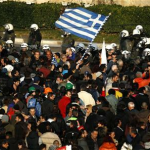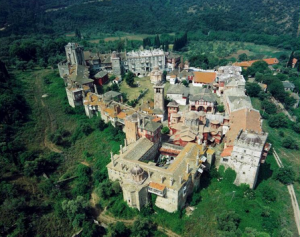Deprecated: trim(): Passing null to parameter #1 ($string) of type string is deprecated in
/home/aoiusa/public_html/wp-content/plugins/sexybookmarks/public.php on line
388
Deprecated: trim(): Passing null to parameter #1 ($string) of type string is deprecated in
/home/aoiusa/public_html/wp-content/plugins/sexybookmarks/public.php on line
394
Deprecated: trim(): Passing null to parameter #1 ($string) of type string is deprecated in
/home/aoiusa/public_html/wp-content/plugins/sexybookmarks/public.php on line
400
 I lived in Greece a while back and have returned five or six times since. The problems that caused Greece’s economic collapse were evident even back in the mid-1990s and like all Greeks, I learned how to play the system in order to survive. We really had no other option. Getting around the rules was necessary if you didn’t want to throw all your money and time away.
I lived in Greece a while back and have returned five or six times since. The problems that caused Greece’s economic collapse were evident even back in the mid-1990s and like all Greeks, I learned how to play the system in order to survive. We really had no other option. Getting around the rules was necessary if you didn’t want to throw all your money and time away.
For example, when I first arrived I was told to go to this office and the next to pay what amounted to tribute. If you paid, you got a stamp. People warned me about this so I asked a friend who was a notary public to stamp and sign every page of every document I needed before I left. It was nonsense and I knew it but I wanted to be prepared.
The first few days I was reluctant not to play by the rules because I did not know what the rules were. But I found out soon enough. I went to one office and paid around $25, got the stamp and then was told to go to the next office. The trouble was that the next office was in another part of town and almost impossible to find. I found it, laid out some more cash and then was told to go to a third office.
These offices were not what you think. There were staffed by middle-aged men most of whom sat at their desks smoking. There were no computers, few storage files (the one I saw just had stacks of yellowed paper obviously sitting there for years), one phone — nothing to indicate that anything went on there except the collecting of money to get the stamp. I never found the third office but by that time I was so frustrated that I decided to dump the whole process. I went back to our apartment.
The next day I went to the university admissions office, pulled out my papers and said I was ready to register. She looked at them and told me I need to get them stamped. I replied that I already got them stamped in America pointing to the notary seal on each page. She looked at them, said fine and I was in. Bogus, yes, but that’s how it was done.
That winter I got my first sinus infection ever. I had no idea what it was and thought I had a brain tumor because the pain was almost unbearable. I didn’t want to go to the public hospital because several months earlier I spent an afternoon there too. I remembered knowing I was in trouble when I went to the reception desk and saw, again, two middle aged men smoking away and chatting. They directed me to a room far off down a thousand hallways. On my way I saw soiled linens laying on the floor. Not good, I thought.
I found the room for the blood test and noticed open vials of blood sitting in racks on different tables. Many students were already there. The procedure was to extract the blood with a hypodermic needle and the squirt it into the tube. The tubes held the names of the donors on a slip of paper rolled up inside them.
When it was my turn to draw blood the nurse came up with the needle. I told her I wanted to see the needle come out of the sterile packet. She was deeply offended by my question and it wasn’t easy asking it, but I had to be sure that the needles were not being reused especially with open vials of blood all over the room and soiled laundry in the hallways. She consented but not without expressing her displeasure.
Then it was time for the x-ray. I walked into another room and there was a man standing right next to the machine (which looked like it came from the 1950s) taking x-rays (he wasn’t smoking) and all the students lined up behind each other. “Don’t they realize that every time he presses the button they are getting radiated?” I thought. Apparently not. I stood in another room waiting for my name to be called.
I resolved I would never go back to the public hospital. But what to do about my sinus infection? I called a friend who had connections in Thessaloniki, he called someone else, and I got the number to a private hospital. The hospital was top rate, as good as many in the United States. I called, said I knew the director (I didn’t but that is how things got done), and set an appointment. It cost me $75 but I received a doctor’s consult, x-ray, prescription, and follow up. Pretty good deal I thought although my Greek friends thought it was an exorbitant charge.
I loved my stay in Greece and I still love the country. If I could return for a visit tomorrow I would. But the Greeks have a hard road ahead of them. We do too if we don’t straighten out our ways, but after the Wisconsin victory this week there is hope that we just might.
Source: Strafor | By Robert D. Kaplan
Greece is where the West both begins and ends. The West — as a humanist ideal — began in ancient Athens where compassion for the individual began to replace the crushing brutality of the nearby civilizations of Egypt and Mesopotamia. The war that Herodotus chronicles between Greece and Persia in the 5th century B.C. established a contrast between West and East that has persisted for millennia. Greece is Christian, but it is also Eastern Orthodox, as spiritually close to Russia as it is to the West, and geographically equidistant between Brussels and Moscow. Greece may have invented the West with the democratic innovations of the Age of Pericles, but for more than a thousand years it was a child of Byzantine and Turkish despotism. And while Greece was the northwestern bastion of the anciently civilized Near East, ever since history moved north into colder climates following the collapse of Rome, the inhabitants of Peninsular Greece have found themselves at the poor, southeastern extremity of Europe.
Modern Greece in particular has struggled against this bifurcated legacy. In an early 20th century replay of the Greco-Persian Wars, Greece’s post-World War I military struggle with Turkey led to a signal Greek defeat and as a consequence, more than a million ethnic Greeks from Asia Minor escaped to Greece proper, further impoverishing the country. (This Greek diaspora in Asia Minor was a massive source of revenue until the Greeks were expelled.) Not only did World War I have a bloody and epic coda in Greece, so did World War II, which was followed by a civil war between rightists and communists. Greece’s ultimate escape from the Warsaw Pact was a rather close-run affair: again, the effect of Greece’s unstable geographical location between East and West.
Greece struggled on. As recently as the mid-1970s it was governed by a particularly brutal military dictatorship (led by colonels from the backwater of the Peloponnese), which lasted for seven years, and fear of another coup persisted during the initial stage of its reborn democracy. Even though the Olympic tradition began in Greece in antiquity and the first modern Olympics were held in Greece in 1896, Greece was denied the right to host the centenary modern Olympics in 1996 owing to the country’s lack of preparedness in organization and infrastructure. Greece did host the 2004 Olympics, but the financial strain that the games put on Greece contributed to the country’s economic fragility in the run-up to the current debt crisis.
It is not entirely an accident that Greece is the most economically troubled country in the European Union. The fact that it is located at Europe’s southeastern back door also has something to do with it. For Greece’s economic and political development bear marks of a legacy not wholly in the modern West.
Roughly three-quarters of Greek businesses are family-owned and rely on family labor, making meritocratic promotion difficult for those outside the family. Tax cheating is rampant. The economy suffers from a profound lack of competitiveness, even as Greece is mainly a service economy, relying on tourism, in which manufacturing constitutes a weak sector. Of course, these features have much to do with bad policies enacted over the years and decades, but they are also products of history and culture, which are, in turn, products of geography. Indeed, Greece lacks enough productive land to be an agricultural power.
Then there is political underdevelopment. Long into the 20th century, Greek political parties had a paternalistic, coffeehouse quality, centered on big personalities — chieftains in all but name — with little formal organizational support. George Papandreou, the grandfather of the recent prime minister of the same name, actually headed a party called the “George Papandreou Party.” Political parties have been family businesses to a greater extent in Greece than in other Western democracies. The party in power not only dominated the highest echelons of the bureaucracy, as is normal and proper in a democracy, but the middle- and lower-echelons, too. State institutions from top to bottom were often overly politicized.
Moreover, rather than having a moderate left-wing party and a modern conservative one, as is common throughout Western Europe, in Greece through the early 1990s there was a hard-left party, the Pan-Hellenic Socialist Movement (PASOK), which during the Cold War openly sympathized with radical Arab regimes like Hafez al Assad’s Syria and Moammar Gadhafi’s Libya, and a somewhat reactionary right-wing party, New Democracy. The drift of both those leading parties toward the center is a relatively recent affair.
And so the creation of late of a hard-left party, SYRIZA, and a hard-right neo-Nazi movement, Golden Dawn (vaguely reminiscent of the military junta that ruled Greece from 1967 to 1974), both harbor distant echoes of Greece’s mid-20th century past. Ironically, while Greece’s extreme economic crisis created these radical groupings in the first place, if these new parties fare badly in the upcoming poll it might indicate a firm rejection of extremism by Greek voters and a permanent turn toward the center — toward political modernity, that is.
There is a tendency in all of this to throw one’s hands up at the specter of the Greeks and declare them too much trouble than they’re worth, at least for Europe. But such an attitude reeks of hypocrisy, even as it denies Western self-interest. When Greece joined the European Union in 1981, its economy was manifestly not ready; Brussels had made a rank political decision, not an economic one — just as it would in admitting Greece to the eurozone in 2002. In both cases, the ground-level, domestic reality of the Greek economy was swept aside in favor of an abstract quasi-historical vision of Europe stretching from Iberia to the eastern Mediterranean.
Of course, Greece, during the 1980s — when I lived there for seven years — might have used the influx of cash from the European Union in order to discipline and reform its economy. Instead, then PASOK Prime Minister Andreas Papandreou used the money to swell the ranks of the bureaucracy. Thus, did Greece remain underdeveloped, and the dream-gamble of Brussels failed. The saddest irony is that the sins of the hard-left Andreas Papandreou were visited upon his well-meaning, center-left son, George, who had his short tenure as prime minister from 2009 to 2011 poisoned by his father’s economic legacy.
But Western self-interest now demands that even if Greece leaves the eurozone — and that is a big “if” — it nevertheless remains anchored in the European Union and NATO. For whether Greece drops the euro or not, it faces years of severe economic hardship. That means, given its geographic location, Greece’s political orientation should never be taken for granted. For example, the Chinese have invested heavily in developing part of the port of Piraeus, adjacent to Athens, even as Russia’s economic and intelligence ties to the Greek area of Cyprus are extremely close. It has been speculated in the media that with Greece short of cash and Russia enjoying a surplus, were the Russians ejected from ports in Syria in the wake of a regime change there, Moscow would find a way to eventually make use of Greek naval facilities. Remember that Greece and Cyprus both have modern European histories mainly because they were claimed by Western powers for strategic reasons.
In other words, from the point of geography and geopolitics, Greece will be in play for years to come.

 Don’t think this cannot happen in America if we don’t get our fiscal house in order.
Don’t think this cannot happen in America if we don’t get our fiscal house in order. 



